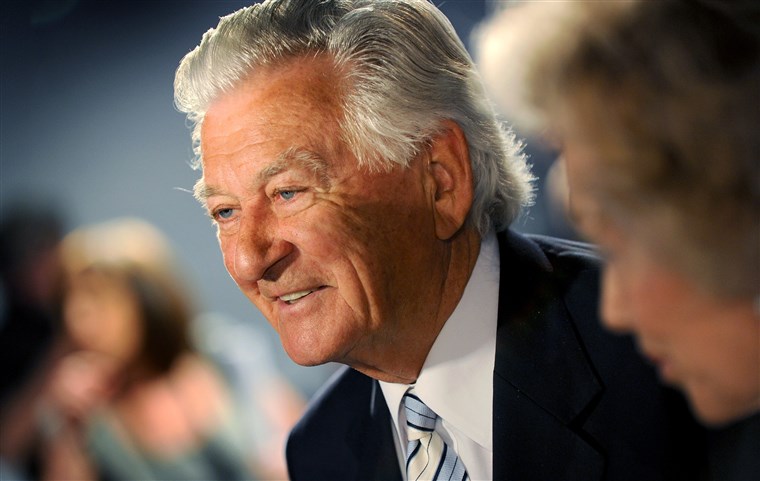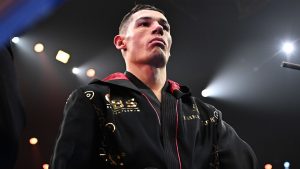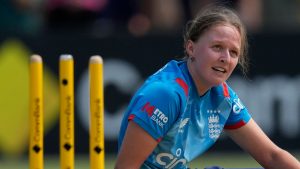Bob Hawke, former Australian prime minister, dead at 89

Known affectionately by his nickname, “Hawkie” was Australia’s prime minister between 1983 and 1991, winning four elections and becoming the country’s third longest-tenured leader.His policies reshaped Australian society, while his vibrant character and sense of humor made him one of the nation’s most-admired figures.His wife, Blanche D’Alpuget, released a statement on Thursday describing her husband as “the greatest Australian of the post-war era.””Bob Hawke and Paul Keating and their governments modernised the Australian economy, paving the way for an unprecedented period of recession-free economic growth and job creation,” her statement said.A Rhodes scholar who graduated from Oxford University in 1956, Hawke quickly rose through the ranks of Australia’s trade union movement to become the President of the Australian Council of Trade Unions in 1970, according to the Museum of Australian Democracy. In 1983, after serving in parliament for just three years, he became Australia’s Prime Minister in a landslide election victory.That success revived Hawke’s Labor Party, ushering in a sustained period of rule that lasted until 1996. Hawke served as Prime Minister for almost nine of those 13 years, winning three more polls in the process and cementing his legacy as the party’s longest-serving and most electorally successful leader.In a political landscape that sees regular elections and frequent leadership contests, Hawke’s longevity can be matched only by Liberal Prime Ministers Robert Menzies and John Howard.But Hawke was as famous for his colorful personality as his political achievements, his bouffant hair and cheeky humor ensuring that he has endured in the country’s affections long after his career came to a close.He reportedly held the world record for skulling a yard of beer in the quickest time when he was a student at Oxford.When an Australian yacht won the America’s Cup in September 1983, Hawke famously declared, “Any boss who sacks anyone for not turning up today is a bum” — a comment that has forever been associated with the leader.A keen cricketer, he memorably had his glasses smashed while playing in 1984. And, in a typically withering put-down in 2011, Hawke described then-Prime Minister Tony Abbott as being as “mad as a cut snake.””Bob Hawke was a great Australian who led and served our country with passion, courage, and an intellectual horsepower that made our country stronger,” the country’s current leader Scott Morrison said.”He was true to his beliefs in the Labor tradition and defined the politics of his generation and beyond,” Morrison added. “He had a unique ability to speak to all Australians and will be greatly missed.”A reformer at home and abroadHawke was a major economic reformer who, alongside his then-treasurer Paul Keating, liberalized the Australian economy and made the landmark decision to float the Australian dollar.He also brought in universal healthcare for all Australian citizens, establishing the Medicare system in 1984.His wife’s statement listed several of his policy achievements, most notably a role in “ending apartheid in South Africa, and his successful international campaign to protect Antarctica from mining.”Internationally, Hawke’s premiership cultivated an era of stronger relations with Asia and the United States.He established the Asia-Pacific Economic Cooperation (APEC) forum, hosting its first annual summit in Canberra in 1989.He placed an emphasis on Aboriginal affairs during his years in office, and briefly re-entered the political fray in 2008 to witness a long-awaited apology to the Aboriginal community, made by then-Prime Minister Kevin Rudd, for years of mistreatment.In an enduring and popular move in 1984, he pushed through legislation to make “Advance Australia Fair” the country’s national anthem, replacing “God Save the Queen.”Keating, Hawke’s right-hand man through nine years of economic reform, ultimately took his job as leader of the Labor Party in a 1991 coup.But Hawke remained one of Australia’s most popular Prime Ministers. The sight of Hawke rapidly downing a beer at a major sporting event, invariably to huge cheers and applause, became something of a modern Australian tradition.He pursued a number of business ventures after leaving politics, but remained a prominent supporter of the party he had previously led — dying just two days before Labor contests a crucial federal election it is tipped to win.Hawke revealed he was in “terrible health” in December. On Tuesday, just hours before his death, he released an open letter urging Australians to vote for the Labor Party and its current leader, Bill Shorten.Praising Shorten for his “courage,” the letter details several of the principles and policies Hawke himself had pursued during his own period in government.He wrote that Shorten’s trade union background is “an asset, as it was for me,” adding: “Labor’s political opponents are seeking to divide and frighten Australians ahead of this election — just as they did back in 1983 when I was seeking the Prime Ministership. It didn’t work then and it won’t work now.” ‘The Australian people loved Hawke’In a statement, Shorten — who had campaigned alongside Hawke ahead of Saturday’s election — said that “the Australian people loved Bob Hawke because they knew Bob loved them.””In Australian history, in Australian politics, there will always be B.H. and A.H: Before Hawke and After Hawke. After Hawke, we were a different country. A kinder, better, bigger and bolder country,” he said.”Bob Hawke was the greatest peacetime leader Australia has ever had,” former Labor Prime Minister Julia Gillard added. “As a teenager Bob inspired me, as a PM he guided me.””I will miss him. I wish so very much that Bob had been able to see one more election day,” added Gillard, who remains Australia’s only ever female leader.Hawke’s death predictably dominates the front pages of Australian newspapers on Friday morning, with the Sydney Morning Herald calling him “The fearless reformer.”Former prime minister Kevin Rudd described Hawke as “a giant of Australian politics,” while actor and Australian resident Russell Crowe said he was “a great man who never lost his humility.”






